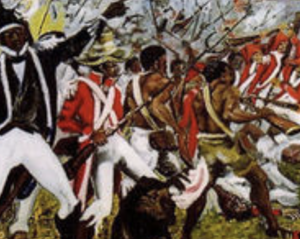
How have Latin American nations defined equality? What were the struggles for social justice during the first century of independence? How have those forces shaped the region? The 19th century is a period of great progress and extraordinary turmoil in Latin America. As the region struggles to carve a path out of coloniality for itself, the literature of this period stages visions of hope and fear about the prospects of these emergent nation-states and remaining colonies. We will analyze how these writings trace both the promises and the failures of their “imagined communities.” Drawing on Latin American cultural studies, postcolonial theory, and gender and sexuality studies, we will explore figures and themes that highlight how the “we” of nationhood is defined, the costs of particular inclusions/exclusions, and to what extent the marginalized redraw the boundaries of nationality. Our approach will be grounded in intersectionality, but we will also pay particular attention to issues of race, gender, and religion over the course of the semester. The syllabus will include major 19th Century Latin American authors such as Rubén Dario, Gertrudis Góméz de Avellaneda, Jorge Isaacs, José Martí, and Ricardo Palma along with some lesser-known writers and films depicting 18th and 19th Century Latin American social issues and struggles.
- Includes major and lesser-known works of 19C Latin American literature
- Includes important critical and theoretical works from and about Latinx America
- Can be used toward Spanish major and minor (undergrad) and distribution requirements (grad)
- Taught in Spanish
- Prerequisite: Span 326 or equivalent (contact Prof. Goldman if you have not taken 326)
TR 5:00-6:20
G20 Foreign Language Building
CRN 52373 (Undergrad); 52372 (Grad)